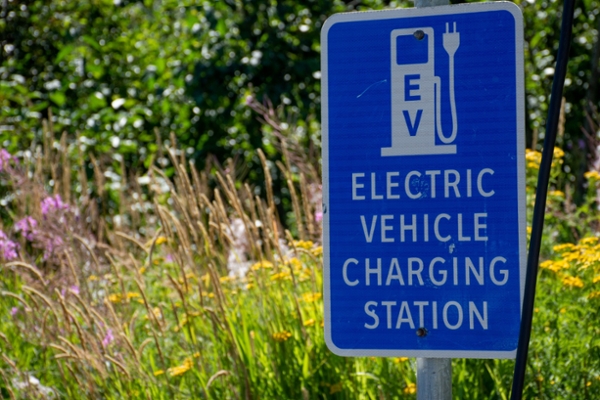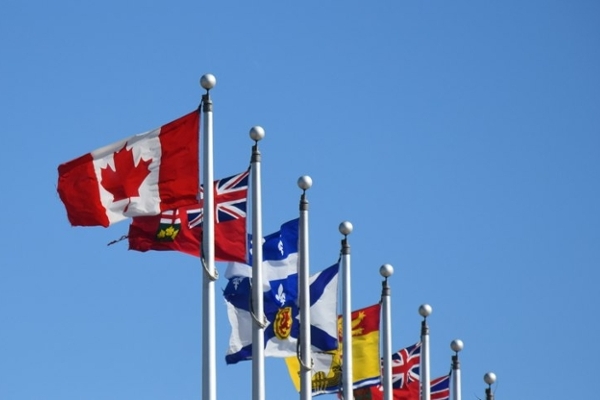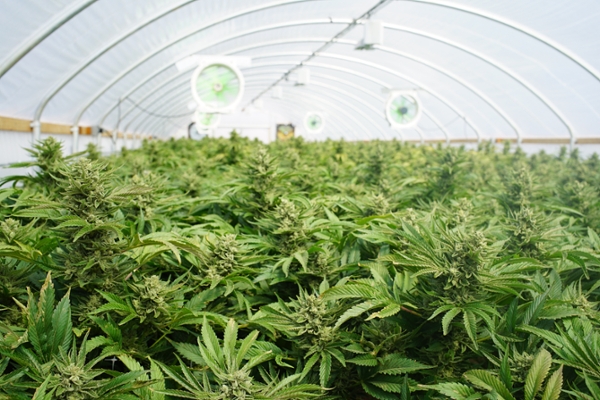Confederation of Tomorrow 2021 (Report 4) ~ Attachment and Advantages: How Canadians View their Country, their Province, and their Neighbour

The Confederation of Tomorrow surveys are annual studies conducted by an association of the country’s leading public policy organizations: the Environics Institute for Survey Research, the Canada West Foundation, the Centre D’Analyse Politique – Constitution et Fédéralisme, the Institute for Research on Public Policy and the Brian Mulroney Institute of Government and the Johnson Shoyama Graduate School of Public Policy. The surveys give voice to Canadians about the major issues shaping the future of the federation and their political communities. The 2021 study consists of a survey of 5,814 adults, conducted online in the provinces between January 25 and February 17; and online and by telephone in the territories between January 25 and March 1.
The mid-point of each calendar year offers an ideal opportunity for Canadians to reflect on issues related to national identity. This period is marked by three national holidays in quick succession: Quebec’s Saint Jean Baptiste Day (or Fête Nationale) on June 24, Canada Day on July 1, and Independence Day in the United States on July 4. This report, based upon the Confederation of Tomorrow 2021 survey of Canadians, presents findings on feelings of attachment to Canada, as well as to one’s province or territory, and explores perceptions of Canada’s advantages relative to the United States in the aftermath of the 2020 U.S presidential election.
Confederation of Tomorrow 2021 (Report 4) ~ Indigenous Relations and Reconciliation

The Confederation of Tomorrow surveys are annual studies conducted by an association of the country’s leading public policy organizations: the Environics Institute for Survey Research, the Canada West Foundation, the Centre D’Analyse Politique – Constitution et Fédéralisme, the Institute for Research on Public Policy and the Brian Mulroney Institute of Government and the Johnson Shoyama Graduate School of Public Policy. The surveys give voice to Canadians about the major issues shaping the future of the federation and their political communities. The 2021 study consists of a survey of 5,814 adults, conducted online in the provinces between January 25 and February 17; and online and by telephone in the territories between January 25 and March 1.
In the early months of 2020, prior to the arrival of the COVID-19 pandemic in Canada, news headlines in the country were focused on the protests taking place over issues relating to Indigenous Peoples’ rights and control over national resource development. These issues were soon overshadowed by the public health emergency triggered by the pandemic, but not necessarily forgotten. In the ensuing period, non-Indigenous Canadians have grown somewhat more supportive of Indigenous rights; and somewhat more concerned about the slow pace of progress being made toward reconciliation. And a growing proportion is also recognizing that individual Canadians have a role to play in efforts to bring about reconciliation between Indigenous and non-Indigenous people.
This report presents the views of both Indigenous Peoples and non-Indigenous people. The results are taken from a survey conducted prior to the recent and devastating discoveries of unmarked gravesites on former residential school sites in B.C. and Saskatchewan.
Confederation of Tomorrow 2021 (Report 3) ~ Addressing climate change in the Canadian Federation

The Confederation of Tomorrow surveys are annual studies conducted by an association of the country’s leading public policy organizations: the Environics Institute for Survey Research, the Canada West Foundation, the Centre D’Analyse Politique – Constitution et Fédéralisme, the Institute for Research on Public Policy and the Brian Mulroney Institute of Government and the Johnson Shoyama Graduate School of Public Policy. The surveys give voice to Canadians about the major issues shaping the future of the federation and their political communities. The 2021 study consists of a survey of 5,814 adults, conducted online in the provinces between January 25 and February 17; and online and by telephone in the territories between January 25 and March 1.
Prior to the onset of the COVID-19 pandemic, climate change had emerged as one of Canadians’ top concerns. The situation a year later is completely different: naturally, the pandemic now eclipses all other issues as the one Canadians see as most important. This change notwithstanding, most Canadians remain supportive of policies to address climate change, including the eventual phasing out of the use of fossil fuels in favour of more renewable sources of energy. At the same time, support for the federal government’s handling of the issue has grown over the past two years in each of the provinces at the forefront of challenging the federal carbon pricing policy in court. Moreover, while opinions on the climate change issue remain somewhat divided, divisions exist within each province and region, and not just between regions of the country.
Confederation of Tomorrow 2021 (Report 2) ~ The Role of Governments and the Division of Powers: Federalism in the Context of a Pandemic

The Confederation of Tomorrow surveys are annual studies conducted by an association of the country’s leading public policy organizations: the Environics Institute for Survey Research, the Canada West Foundation, the Centre D’Analyse Politique – Constitution et Fédéralisme, the Institute for Research on Public Policy and the Brian Mulroney Institute of Government and the Johnson Shoyama Graduate School of Public Policy. The surveys give voice to Canadians about the major issues shaping the future of the federation and their political communities. The 2021 study consists of a survey of 5,814 adults, conducted online in the provinces between January 25 and February 17; and online and by telephone in the territories between January 25 and March 1.
The COVID-19 pandemic has presented governments in Canada with enormous challenges. While the current priority remains stemming the spread of the virus and accelerating the pace of vaccinations, governments are also looking ahead to the measures needed to shape an economic recovery. In this context, it is striking that Canadians’ views on the role of government – and on how the different governments in the federation work together – generally have not changed that much since the onset of the pandemic. Notably, most Canadians continue to be comfortable with the decentralized nature of the federation. And while there is widespread support for increases in federal transfers to provinces and territories for health care, care for the elderly, and child care, the public is more divided as to whether this funding should be tied to the acceptance of national standards.
Confederation of Tomorrow 2021 (Report 1) ~ All in this Together? Canadians’ Views on Masks, Vaccines and Lockdowns during the COVID-19 Pandemic

The Confederation of Tomorrow surveys are annual studies conducted by an association of the country’s leading public policy organizations: the Environics Institute for Survey Research, the Canada West Foundation, theCentre D’Analyse Politique – Constitution et Fédéralisme, the Institute for Research on Public Policy and the Brian Mulroney Institute of Government and the Johnson Shoyama Graduate School of Public Policy. The surveys give voice to Canadians about the major issues shaping the future of the federation and their political communities. The 2021 study consists of a survey of 5,814 adults, conducted online in the provinces between January 25 and February 17; and online and by telephone in the territories between January 25 and March 1.
A year into the COVID-19 pandemic, efforts to limit the spread of the virus continue to depend in large part on the willingness of citizens to modify their behaviours to conform with public health guidelines, notably those relating to physical distancing and wearing masks. More recently, the focus has turned to ensuring that citizens will agree to get vaccinated once a vaccine becomes available to them. The Confederation of Tomorrow 2021 survey of Canadians finds that there is widespread agreement across the country on key aspects of the response to the COVID-19 pandemic, including the requirement to wear masks in public, the importance of getting vaccinated, and the need for a prudent approach to reopening the economy. One reason for this agreement is that, in the midst of a public health crisis, the public continues to place a high degree of confidence in scientists and medical experts.
Saskatchewan and Climate Change: The Challenges, Policy Options and Implications

The Johnson Shoyama Graduate School of Public Policy has issued an in-depth policy paper on climate change. It examines the policy instruments being used to reduce carbon emissions, and the projected economic impact of each on the province of Saskatchewan. The study sets out the geopolitical, social, economic, environmental and fiscal challenges that are central to the climate change policy debate. It also explores the legal arguments likely to frame an expected constitutional challenge by the Saskatchewan government of a federally imposed carbon price.
Legalizing & Regulating Cannabis in Saskatchewan

The Johnson Shoyama Graduate School of Public Policy (JSGS) has issued an in-depth policy paper on the legalization of cannabis in Canada. By July 2018, the production, distribution, and sale of cannabis will be legal across the country. The Government of Canada’s decision to legalize and regulate was driven by three core objectives:
- Dismantle the illicit market
- Restrict youth access
- Minimize harm
In very short order, provincial governments have to develop policy regimes and in some instances without the necessary evidence typically required to ensure effectiveness. One of the biggest problems is that a fully legalized cannabis sector is so new that we lack any system of best practices and must instead rely on piecing together evidence from across a number of policy lenses, including public health, public safety, economics, and innovation. While some provinces and professional associations have understandably requested more time to prepare for the Act coming into force, the Federal Government has had little appetite for putting off legalization. The underlying logic is that any delay would mean another year of doing nothing to keep cannabis out of the hands of youth and to keep profits out of the illicit market.
Faced with the scope of the policy issues and the time pressure to put an effective regulatory system in place, the JSGS has released a report examining the policy challenges.

